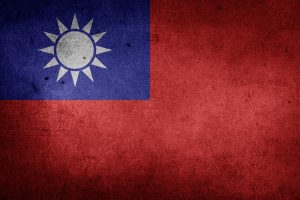The Taiwanese air force chased off multiple Chinese People’s Liberation Army Air Force (PLAAF) fighters that entered Taiwan’s air defense identification zone on Tuesday, the Taiwanese Ministry of Defense said in a statement.
According to the statement, the Republic of China Air Force (ROCAF), as Taiwan’s air force is formally known, deployed fighters to repel Chinese Su-30 Flanker fighters. The PLAAF fighters were given verbal warnings to leave Taiwan’s air defense identification zone.
The incident followed a transit of Taiwanese air space, with permission, by a U.S. C-40A Clipper military personnel transport aircraft — a variant of the civilian Boeing 737. The Taiwanese Ministry of Defense noted the American flight had taken place with permission and that the U.S. aircraft did not land on Taiwanese soil.
The U.S. C-40A, according to Taiwanese media reports, was flying from Okinawa, where the United States has a major military presence as part of the alliance with Japan. Under the Trump administration, the United States has continued to support Taiwan, including through major arms sales.
According to the Taiwanese Ministry of Defense, Taiwan’s intelligence, surveillance, and reconnaissance capabilities allow it to persistently monitor the airspace around Taiwan. The Ministry did not specify which ROCAF assets were involved in repelling the PLAAF Su-30s.
China considers Taiwan as part of its territory and has grown especially sensitive in recent years to what it views as Taipei’s drift toward independence under the leadership of President Tsai Ing-wen and the Democratic Progressive Party. Neither supports formal independence, but are seen in Taiwan as leaning heavily away from Beijing.
In recent months, the PLAAF has conducted multiple exercises and transits through the Taiwan Strait and in the airspace around Taiwan, including through the Miyako Strait in the East China Sea and the Bashi Channel south of Taiwan.
Tensions between the mainland and Taiwan have grown in recent months — particularly after Tsai won a second term with overwhelming support in January.
Chinese officials have insisted that the use of force against Taiwan remains an option to unify the two. In May, Li Zuocheng, chief of the Joint Staff Department and member of the Central Military Commission of the Chinese Communist Party, said that China would use force against Taiwan if necessary.
“We warn Taiwan’s pro-independence and separatist forces sternly, the path of Taiwan independence leads to a dead end; any challenge to this law will be severely punished,” Li said.

































